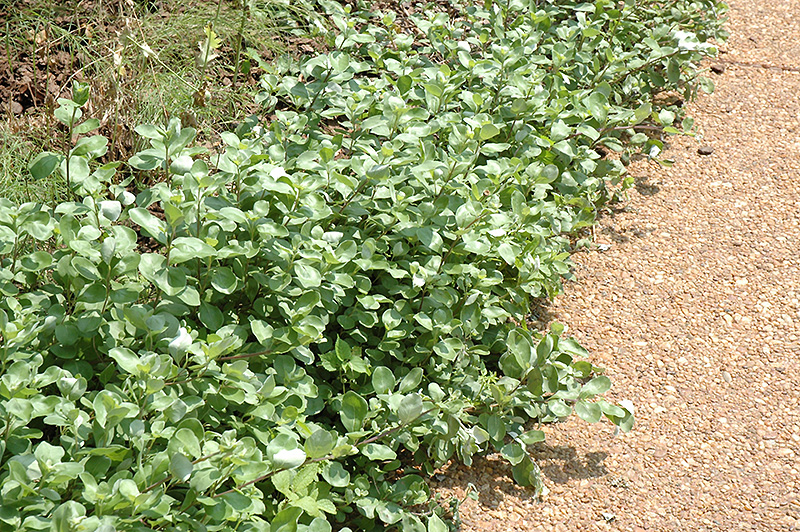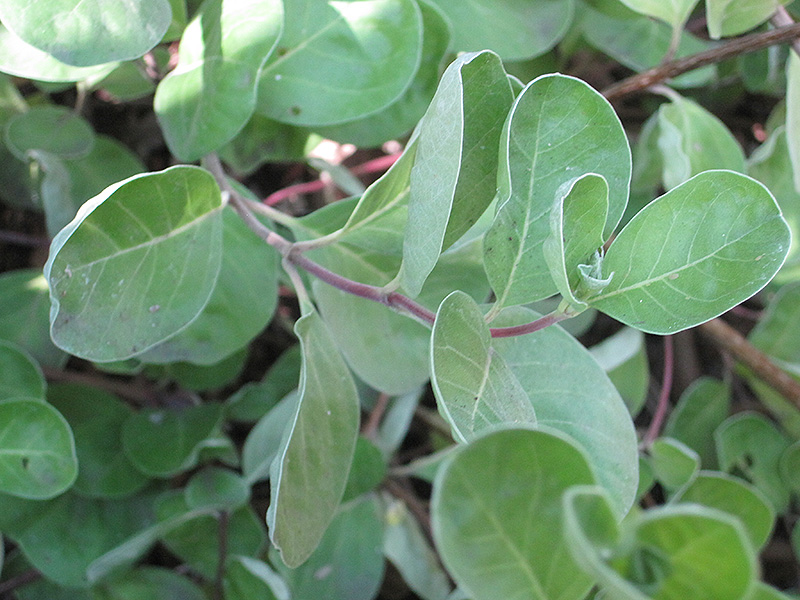Height: 4 feet Spread: 10 feet
Sunlight:
Hardiness Zone: 6a Other Names: Pohinahina Description: A seashore variety that is low growing with a sprawling habit, and is very fast growing and produces runners that root at nodes; pretty blue-purple flowers clusters in summer; can be cut back each spring, as it flowers on new wood and regrows vigorously Ornamental Features Beach Vitex has panicles of blue flowers with purple overtones rising above the foliage from mid to late summer. It has grayish green foliage with silver undersides. The palmate leaves do not develop any appreciable fall color. Landscape Attributes Beach Vitex is an open multi-stemmed deciduous shrub with a ground-hugging habit of growth. Its relatively fine texture sets it apart from other landscape plants with less refined foliage. This is a high maintenance shrub that will require regular care and upkeep, and is best pruned in late winter once the threat of extreme cold has passed. Gardeners should be aware of the following characteristic(s) that may warrant special consideration; Beach Vitex is recommended for the following landscape applications; Planting & Growing Beach Vitex will grow to be about 4 feet tall at maturity, with a spread of 10 feet. It tends to be a little leggy, with a typical clearance of 2 feet from the ground. It grows at a fast rate, and under ideal conditions can be expected to live for 50 years or more. This shrub should only be grown in full sunlight. It is very adaptable to both dry and moist locations, and should do just fine under average home landscape conditions. It is not particular as to soil pH, but grows best in sandy soils, and is able to handle environmental salt. It is highly tolerant of urban pollution and will even thrive in inner city environments, and will benefit from being planted in a relatively sheltered location. This species is not originally from North America. It can be propagated by cuttings.![]()
![]()
![]()
![]()
![]()
![]()
![]()
![]()
top of page
Louie's Nursery Menifee - Plant Finder
Characteristics
Applications
Features & Attributes
This tool is an online resource representing many of the varieties that we carry over the course of the season, and is intended for informational purposes only. Inventory varies seasonally, so we cannot guarantee that every plant will be in stock at all times - please contact the store directly for current availability. It does not include our entire selection of plants, so be sure to visit our store to see varieties that may not be represented on this list.
bottom of page

